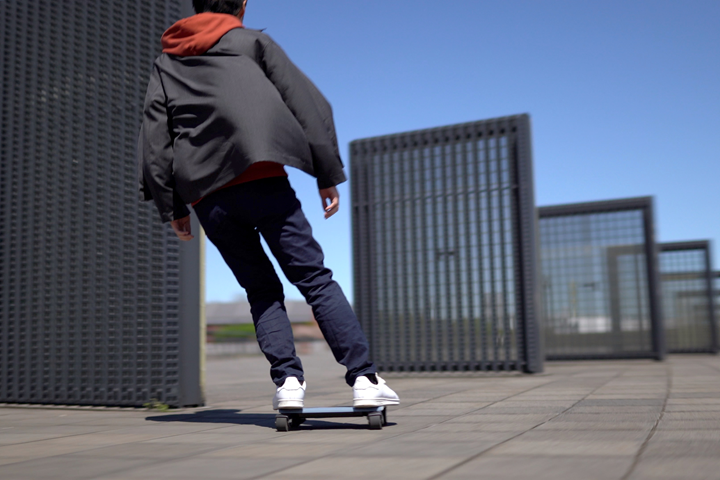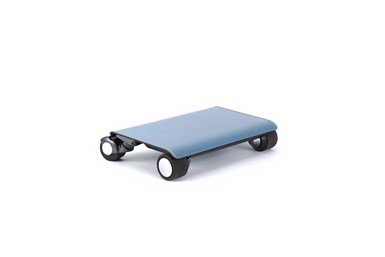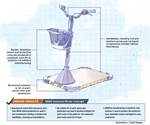
Source | Teijin Ltd.
Personal, motor-driven transportation devices have a lot of names: automated people movers (APM), electric skateboards, hoverboards and others. One of the latest to go on the market, from Cocoa Motors Inc. (Tokyo, Japan), is called WALKCAR, which the company says comes from the idea of the device being both an alternative to walking and a “portable car.”

Source | Cocoa Motors Inc.
A roughly square-shaped board with a motor and wheels, the portable, automatic WALKCAR device is said to be simple to use — it automatically starts when the user steps onto it, it operates based on the user shifting his or her center of gravity without need for a handle or controller and it stops automatically when the user steps off. It’s also reported to be able to travel about 7 kilometers on a single charge of its specially developed motor, at speeds of up to 16 kilometers per hour. And, importantly, thanks to thermoplastic composite materials from Teijin Ltd. (Tokyo, Japan), WALKCAR is reportedly lightweight and durable to make it both portable and long-lasting enough for regular use.

Source | Cocoa Motors Inc.
Marketed as a laptop-sized device that can easily fit into a standard bag or backpack, WALKCAR measures 21.5 centimeters by 34.6 centimeters, and weighs 2.9 kilograms (about 6.3 pounds). The board itself is comprised of three layers, according to Teijin: a thin top cover that comes into contact with the user, the main structural portion of the board and a bottom cover that serves to cover the motor and other drive parts.
According to Teijin, the main board is constructed from Teijin’s Tenax TPCL carbon fiber-reinforced thermoplastic composite laminates (used elsewhere on applications like components for the Airbus A350 XWB) and thermoplastic woven Tenax TPWF fabric. Teijin’s Panlite polycarbonate resin is incorporated into the top and bottom covers. According to Teijin, Tenax materials offer 10 times the strength of steel at 25% of the weight, and Panlite resins are 200 times more impact resistant than fiberglass at half the weight.
The WALKCAR went on sale in Japan in June 2020 and is now available for international sale starting Aug. 11.
Related Content
-
PEEK vs. PEKK vs. PAEK and continuous compression molding
Suppliers of thermoplastics and carbon fiber chime in regarding PEEK vs. PEKK, and now PAEK, as well as in-situ consolidation — the supply chain for thermoplastic tape composites continues to evolve.
-
Plant tour: Airbus, Illescas, Spain
Airbus’ Illescas facility, featuring highly automated composites processes for the A350 lower wing cover and one-piece Section 19 fuselage barrels, works toward production ramp-ups and next-generation aircraft.
-
JEC World 2024 highlights: Thermoplastic composites, CMC and novel processes
CW senior technical editor Ginger Gardiner discusses some of the developments and demonstrators shown at the industry’s largest composites exhibition and conference.


.jpg;width=70;height=70;mode=crop)














